

8DWELLNESSAI
WHITEPAPER

CONNECTING, INSPIRING,AND EMPOWERING WELLNESS
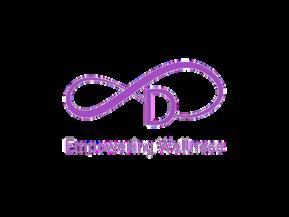
CANDILYN BARIBAULT PERRY
At 8 Dimensions, we are dedicated to advancing mental health care through technology. Our latest initiative, 8D Wellness AI, represents a groundbreaking advancement in this field, setting a new standard for innovation and accessibility. By leveraging advanced AI and real-time data analytics, we aim to offer personalized, comprehensive support to individuals globally. This initiative embodies our commitment to combining state-of-the-art technology with compassionate care, ensuring that everyone has access to the resources they need for mental well-being.
As the team behind 8 Dimensions, we are deeply passionate about the transformative potential of 8D Wellness AI. This platform is not just a technological achievement but a transformative solution for millions. It stands out for its innovative approach, integrating sophisticated AI algorithms to provide unprecedented levels of personalized care. Our vision for 8D Wellness AI is to reshape mental health care, making it more inclusive, effective, and widely available. This initiative reflects our commitment to creating a world where mental health support is accessible to all, empowering individuals to lead healthier, more fulfilling lives.
— Candilyn Barribault, Founder, 8 Dimensions


1 2 3 4 5 6 7 8








8DIMENSIONS OFWELLNESS
We are a philanthropic 501(c)(3) company created to educate, inspire and empower wellness through using the 8 Dimension model. We offer information, education, guidance, coaching and support via our online platform which is accessible worldwide. We provide a safe space supported by vetted coaches and specialists who are trained to work within all the dimensions. Our platform offers help in a conventional, alternative, as well as holistic approach.
Our unbiased organization promotes education and services for your well-being, regardless of financial restrictions while guiding and encouraging you to reach your full potential.

OUR MISSION
At 8D Wellness AI, we envision a world where technology and empathy converge to transform mental health care. Our mission is to leverage the power of advanced AI to create a seamless, intuitive platform that transcends traditional barriers, offering personalized mental health support and insights. We are committed to making mental well-being accessible to all, fostering a proactive approach to mental health that empowers individuals to understand and improve their emotional landscape. By integrating real-time data analytics with compassionate AI interactions, we aim to revolutionize the way people engage with their mental health, promoting resilience, awareness, and growth. Our ultimate goal is to inspire a global movement towards a more empathetic and connected approach to mental health, where technology serves as a catalyst for positive change and personal transformation.
D W E L L N E S S A I

THE WHITEPAPER
This whitepaper serves as an essential guide for stakeholders interested in the forefront of mental health innovation, providing a thorough exploration of the 8D Wellness AI platform. It delves into the challenges currently faced by the mental health sector and presents our solution as a significant advancement in personalized care. The document is structured to offer a clear understanding of the platform's unique technological features, including predictive analytics and real-time data processing capabilities.
Readers will find detailed sections on the market landscape, outlining the competitive environment and positioning of 8D Wellness AI. The whitepaper also includes comprehensive discussions on regulatory considerations, intellectual property strategies, and the implementation roadmap. The insights provided in this document are aimed at fostering a deeper understanding of the project's scope, impact, and potential in revolutionizing mental health care.


EXECUTIVESUMMARY
8D Wellness AI is poised to revolutionize mental health care through the use of advanced AI and real-time data analytics. This innovative platform aims to deliver personalized mental health care by adapting to individual health patterns using state-of-the-art technology. By providing actionable insights, it seeks to enhance the management of mental health, making care more accessible and effective.
The primary objective of this whitepaper is to introduce the 8D Wellness AI project, highlighting its technical and market readiness. It also discusses the innovative solutions it offers and explores the future direction of this technology. 8D Wellness AI addresses the critical need for effective mental health solutions by utilizing AI to provide predictive analytics, behavioral pattern recognition, and adaptive learning algorithms. These features enable the platform to identify early signs of mental health issues and offer interventions tailored to individual needs.
Key technological innovations of 8D Wellness AI include predictive analytics, which uses machine learning algorithms to forecast potential mental health episodes based on user data. The platform's behavioral pattern recognition capability analyzes user behaviors and habits to detect deviations that may signal mental health issues. Additionally, its adaptive learning algorithms continuously improve the accuracy and personalization of mental health recommendations based on ongoing user interactions. These advancements are set to transform personalized health interventions, making mental health care more effective and accessible.
In the wake of the COVID-19 pandemic, there has been a significant increase in the demand for innovative mental health solutions. 8D Wellness AI addresses this demand with a sophisticated and scalable solution. Competitive analysis reveals that despite the presence of major players like Apple and Google, 8D Wellness AI distinguishes itself with its customization capabilities and user engagement strategies. These unique selling points provide a competitive edge, positioning 8D Wellness AI as a leader in the mental health tech space.
The business model for 8D Wellness AI includes multiple revenue streams, such as a freemium service model that attracts users with a free version while offering premium features for a subscription fee. The platform also provides API integration services, allowing third-party developers and healthcare providers to access its capabilities for a fee. Additionally, strategic partnerships with healthcare providers and insurance companies are planned to expand market reach and enhance credibility. The implementation strategy involves a phased deployment, starting with pilot testing in controlled environments, followed by regional launches, and eventually scaling to national and international markets. This approach ensures risk mitigation and iterative improvements based on user feedback.
The project requires a budget of $385,000 for the first year, covering human resources, technological infrastructure, and operational costs. The team will comprise data scientists, AI engineers, regulatory experts, and support staff. Necessary technological resources include hardware for data processing, software licenses, and cloud services. Operational costs cover office space, customer support facilities, and other essential expenses.


EXECUTIVESUMMARY
8D Wellness AI is committed to adhering to global regulations such as GDPR and HIPAA, emphasizing the importance of data privacy and security. The project also focuses on securing intellectual property through patents and trademarks, which will protect the innovation and market exclusivity of 8D Wellness AI. This commitment enhances the platform's credibility and trustworthiness.
Looking ahead, the long-term vision for 8D Wellness AI includes continuous research and development, technological advancements, and expansion into new markets. The platform aims to integrate with broader health ecosystems, establish partnerships with health institutions, and influence healthcare policies, ultimately shaping the future of mental health care.
We invite potential investors, healthcare providers, and technology partners to explore the detailed analyses presented in the full whitepaper and consider opportunities for collaboration and investment. The success of 8D Wellness AI depends on the collective efforts of diverse stakeholders committed to improving mental health care globally. Join us in this transformative journey to make mental health care more accessible and effective for all.
INTRODUCTION
GlobalStateofMentalHealth
The global scenario of mental health is fraught with hurdles. The rise in mental disorders and the heavy economic toll is undeniable. The World Health Organization reports over 264 million people grappling with depression alone, marking it as a leading cause of disability. The economic burden is also staggering, with mental health conditions draining over $1 trillion annually in productivity losses. These figures underscore a pressing need for effective solutions, particularly in underserved regions where mental health care access is sparse.
The demographic spread of mental health issues complicates matters further. Mental health challenges affect individuals across all demographics, yet care access and quality often hinge on socioeconomic status, geography, and cultural factors. For example, lower-income countries struggle with less than one psychiatrist per 100,000 people, whereas high-income countries have more than ten, showcasing stark disparities in care access.
TechnologicalInnovationsinMentalHealthCare
Advancements in technology have profoundly influenced mental health care. Telehealth, AI-driven therapy, and wearable tech have started reshaping treatment landscapes, enhancing accessibility and reducing stigma. Telehealth expands care to remote locations, while AI applications in therapy offer new methods to monitor and analyze patient data efficiently.
Wearable tech has become pivotal. Devices that track physiological markers like heart rate and sleep patterns provide continuous data, offering insights into mental health states and potentially predicting crises. These technologies integrate seamlessly into daily routines, presenting promising paths for ongoing mental health management.
Introducing8DWellnessAI
8D Wellness AI brings a notable advancement in personalized mental health care. Utilizing AI, it analyzes data from various sources, including wearables, to provide customized health insights and proactive care suggestions. Its core functionality tackles specific mental health treatment challenges, such as early mood fluctuation detection and personalized intervention strategies.
The AI-driven model of 8D Wellness AI processes real-time data to continually adapt to individual needs. By examining behavioral patterns and physiological data, it suggests tailored actions to help users sustain mental wellness and preempt potential health issues.
This system is distinguished by its technological sophistication and its capacity to make mental health care more proactive and accessible. Bridging technology and healthcare, 8D Wellness AI aims to revolutionize the global approach to mental wellness, becoming a vital tool in combating mental health disorders.



THEURGENCYOF INNOVATIONIN MENTALHEALTH
EscalatingMentalHealthDisorders
Worldwide, mental health disorders surge, posing a deep challenge to public health. This has grown sharper since COVID-19 began. The pandemic worsened old mental health problems and brought new ones to different groups. The Centers for Disease Control and Prevention reports that disorders like anxiety and depression climbed almost 30% in the past five years. Young people and the elderly struggle the most. They face loneliness, their daily lives upended. Substance abuse has climbed too. More people turned to alcohol and drugs during times of lockdown.
These rising trends burden not just individuals but entire communities and healthcare systems, often pushing mental health services to their limits. This emphasizes the dire need for scalable, effective solutions.
ShortcomingsofTraditionalMentalHealthCareSystems
Traditional health care systems often don't meet the mental health crisis effectively. A big problem is the scarcity of early detection and preventive care, key for managing mental health well. These systems often use a general approach that doesn't fit the varied needs of different people, leading to care that doesn't quite work and has broad economic and social costs. For instance, untreated mental health issues can make health care more expensive because they can lead to more hospital stays and long-term disease management. They're also tied to more unemployment and a poorer quality of life.
Reviews show too much reliance on drugs without enough support or psychological services doesn't fully meet the needs of those with mental health issues. This points out why we need new care models that use technology and tailor care more personally.
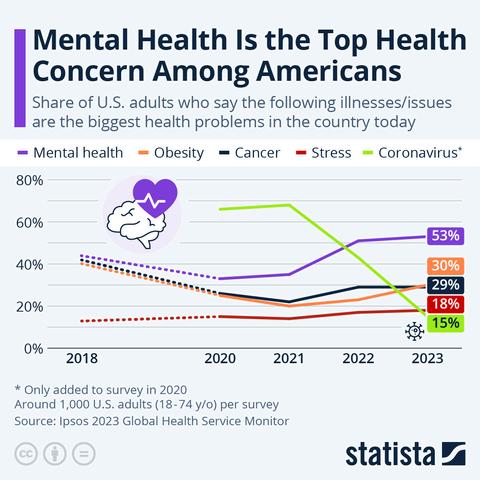
ImageSource:Statista.com
URL: https://cdnstatcdncom/Infographic/ images/normal/30995jpeg
THEURGENCYOF INNOVATIONIN MENTALHEALTH
PotentialofAIinMentalHealthInnovations
Artificial Intelligence (AI) could deeply change mental health care, making treatment plans more personal and timely. AI can sift through huge amounts of data from clinical histories, real-time health monitoring, and daily behavior patterns. This helps spot and predict mental health risks early. Predictive analytics can turn mental health care from reacting to problems to preventing them, reducing crises and boosting overall health. AI-driven tools like chatbots and virtual therapists can give ongoing help and interaction; this is vital for people with long-term conditions or those far from regular health services. Recent studies, such as those in the Journal of Technology in Behavioral Science? show that AI tools can help lessen depression and anxiety symptoms through personalized cognitive behavioral methods.


ADVANCESINCONSUMER HEALTHTECHNOLOGIES

PioneeringTechnologiesinHealthMonitoring
Wearable devices and mobile apps have changed how we manage mental health. Brands like Apple, Samsung, and Fitbit lead this change with new features to track mood and stress. Apple's Health app now lets users track their moods daily to spot stress or anxiety signs.
Gartner and IDC research points out a big rise in using these devices after 2020, showing that 20% more people adopted this tech in the last two years; this underscores a shift to depending more on technology for health.
AI'sRoleinPersonalizedHealthInterventions
AI transforms health monitoring by allowing very personalized interventions, Through detailed data analysis, AI predicts mental health risks and suggests changes in behavior. A study in the *Journal of Medical Internet Research* showed an AI system that offers custom coping strategies to those with anxiety, reducing their symptoms noticeably.
AI learns from big data sets to customize health interventions, greatly boosting mental health management effectiveness, This personal approach not only betters individual health outcomes but helps us understand mental health better as a whole.
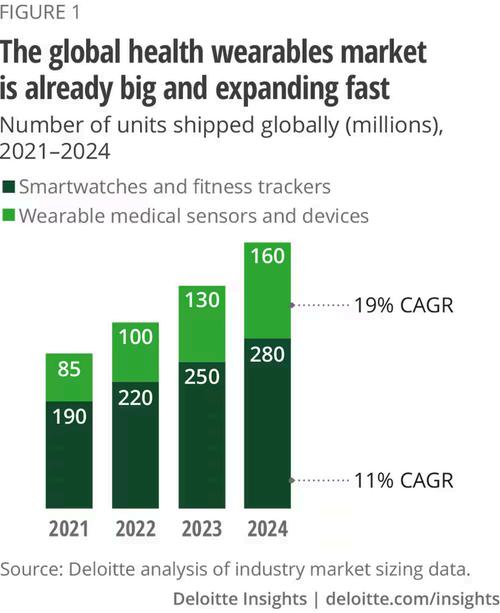
ImageSource:Deloitte.com URL: https://www2.deloitte.com/content/dam/insights/articles/GLOB 164601 Wearablehealthcare/figures/GLOB164601 Figure1.jpg
ADVANCESINCONSUMER HEALTHTECHNOLOGIES

ImpactonConsumerBehaviorandHealthOutcomes
Wearable tech and AI have a big positive impact on mental health results. Data from health technology assessment bodies indicate that tech users see better mental health engagement and outcomes. A study in the *American Journal of Preventive Medicine* found that users of these devices saw a 30% drop in depression symptoms over half a year.
These technologies push users to manage their health better, leading to early detection and intervention of health issues, This proactive approach not only improves individual health but also cuts the long-term costs linked to mental health problems. Through strategic use of AI and wearable tech, mental health care is changing fast, leading to more effective, personalized, and proactive care. This benefits individuals by giving clearer and more actionable health insights and could reshape mental health care globally.


8DWELLNESSAI: CONCEPTANDVISION
TheGenesisof8DWellnessAI
8D Wellness AI began with a decisive idea, to blend AI with ongoing health monitoring to better manage the mental health crisis. This idea sprang from the urgent need for care that reacts dynamically to each person's situation, offering help precisely when it's most needed.
The early discussions about the project stressed easy access. The main aim was to make mental health care accessible for all, regardless of where they live or their economic status. Using advanced technology, 8D Wellness AI planned to provide personalized care that overcomes common barriers like access difficulties and the stigma often linked to mental health services.
Core Functionalities and Technological Blueprint of 8DWellnessAI
DetailedTechnologicalFramework
The base of 8D Wellness AI lies in a complex blend of machine learning, data analysis, and immediate processing capabilities. This setup aims to enhance mental health interventions. Here are the key functions and the tech that supports them:
Real-TimeHealthMonitoring
This involves constant data collection from IoT devices like wearable health trackers that check heart rate variability, sleep, and activity levels. This information is crucial for understanding a user's physical state, which might show signs of stress or emotional distress.
AdvancedMachineLearningModels
Central to 8D Wellness AI are several machine learning algorithms, including:
Predictive Analytics: This utilizes past data and immediate inputs to foresee possible mental health issues, allowing for early intervention.
Natural Language Processing (NLP): This assesses inputs from apps, like mood logs or textual feedback, to understand sentiment and emotional state, improving the customization of care.
Behavioral Pattern Recognition: This function spots behavior patterns linked to mental health changes. Algorithms assess deviations from normal behavior to highlight issues and suggest actions.
AutomatedPersonalizedInterventions
The system creates customized wellness activities based on analyzed data, tailored to each user's needs. These might be suggested exercises, meditation, or therapy sessions.
StressLevelMonitoringUsingBiofeedback
This includes biofeedback methods where sensors detect physical signs of stress (like faster heartbeats or sweating) and give real-time advice to help users manage stress through guided activities!
DataIntegrationandSecurity:
Data from different sources are compiled on a secure, central platform. Strict security measures ensure that all user data is encrypted and adheres to strict data protection laws like GDPR and HIPAA.

8DWELLNESSAI: CONCEPTANDVISION
TechnologicalBlueprint
CloudComputingInfrastructure:
Utilizes scalable cloud services to handle large data volumes. This infrastructure supports the substantial computational demands of real-time data processing and machine learning tasks.
EdgeComputing:
Implements edge computing to process data directly on devices for immediate application. This reduces delays and ensures timely delivery of interventions.
InteroperabilityandAPIs:
The system features open APIs for easy integration with other health apps, medical records, and external services, crucial for a comprehensive approach to mental health care.
ContinuousLearningandAdaptation:
The system constantly updates its algorithms and interventions based on new data, ensuring that the care it provides keeps pace with the latest medical insights and user feedback.
AVisionforGlobalImpact
8D Wellness AI aims to create a wide-reaching impact. The goal is to scale the technology for diverse groups, adjusting to different cultural and regulatory settings to make mental health care a universal right. Project plans emphasize that 8D Wellness AI is built to be scalable, with adaptable components for various regions and needs.
Plans for worldwide expansion take into account not just tech changes but also social and economic factors affecting mental health care. By working with local partners and matching regional health policies, 8D Wellness AI seeks to be a key player in global mental health strategies, improving life quality and community well-being everywhere.
The commitment to these ambitions shows in the continuous development and fine-tuning of the platform, ensuring that as 8D Wellness AI grows, it remains responsive to its users' needs and the evolving global health scenario. With this forward-thinking approach, 8D Wellness AI is poised to transform mental health care for generations to come, making it more personal, accessible, and efficient.



TECHNICALSPECIFICATIONS ANDINNOVATIONS
AdvancedAIandMachineLearningAlgorithms
8D Wellness AI utilizes a suite of sophisticated AI and machine learning algorithms designed to process complex datasets and deliver precise mental health insights. These algorithms include:
PredictiveAnalytics
Employing statistical techniques and predictive modeling, the system anticipates potential mental health crises by analyzing trends in behavioral and physiological data.
DeepLearning
Neural networks analyze unstructured data from various sources, including text inputs and voice patterns, to detect subtle signs of mental health issues.
ReinforcementLearning
Used to optimize intervention strategies based on user feedback, continuously improving the personalization of care.
Research presented at recent AI healthcare conferences, such as those conducted by IEEE and ACM, has demonstrated similar AI applications' efficacy in improving patient outcomes in mental health scenarios.
Real-TimeDataProcessingandAnalytics
The backbone of 8D Wellness AI is its capability to process data in real time, crucial for providing immediate feedback and interventions to users. This is supported by:
CloudComputingPlatforms
Utilizing Amazon Web Services (AWS) and Google Cloud, 8D Wellness AI leverages powerful cloud infrastructures to manage and analyze large volumes of data efficiently. These platforms ensure scalability and robustness, handling everything from data storage to complex computational tasks.
EdgeComputing
To minimize latency, data processing is also performed at the edge, closer to where data is collected (e.g., on mobile devices or wearable technology). This approach ensures that critical data can be processed and acted upon instantly, without the delays associated with data transmission to centralized servers.
Best practices from these cloud services include high standards for data security and privacy, ensuring that all user data are handled in compliance with global regulations like GDPR and HIPAA.





TECHNICALSPECIFICATIONS ANDINNOVATIONS
InnovationinUserInteractionandEngagement
The user interface of 8D Wellness AI is designed to be intuitive and engaging, encouraging users to interact regularly and meaningfully with the platform. Key features include:
Gamification
Incorporating elements of game design such as points, badges, and leaderboards to motivate users to engage with their mental health activities consistently.
CustomizableUserDashboards
Users can personalize their dashboards to display the most relevant information and notifications, enhancing their interaction with the app.
FeedbackMechanisms
The system includes automated and user-initiated feedback loops that allow users to inform the AI about the effectiveness of the interventions, further refining the personalization process.
Principles from leading UX/UI design frameworks guide the development of these features, ensuring they meet user needs and preferences effectively. Studies in user interface design, particularly in health applications, underscore the importance of such tailored interactions in promoting longterm user engagement and adherence to mental health management practices.


Your Current Wellness Score



PRIVACYANDDATA SECURITY
Comprehensive Data Encryption and Security Measures
At the heart of 8D Wellness AI's operations is a strict policy on data security, ensuring that all user data is shielded with the highest standards of encryption and security protocols. We deploy end-to-end encryption for data, whether it's in transit or at rest, This means data moving from user devices to our servers and data stored within our systems are both encrypted using sophisticated cryptographic techniques, rendering them inaccessible to unauthorized entities.
We employ AES (Advanced Encryption Standard) for encrypting data at rest and TLS (Transport Layer Security) for data in transit. These methods are recognized across the industry for safeguarding sensitive information, following cybersecurity recommendations from bodies like the National Institute of Standards and Technology (NIST).
Reference: Our security practices are in line with the Health Insurance Portability and Accountability Act (HIPAA) in the U.S. and the General Data Protection Regulation (GDPR) in Europe, benchmarks for data security in health applications.

CompliancewithGlobalPrivacyRegulations
8D Wellness AI seamlessly aligns with global privacy laws. Ensuring compliance is crucial as it guarantees that we respect user rights and adhere to legal norms across various regions. Our consent management processes are strict, allowing users to clearly choose what data they share and its usage. This method aligns with GDPR demands and builds user trust by maintaining transparency and control over personal data.
Every feature of 8D Wellness AI dealing with personal data is designed to meet the privacy laws of the regions we operate in; for example, functionalities available to European users are fully compliant with GDPR, including rights to access, amend, and delete data.
OngoingMonitoringandUpdates
To uphold the integrity of our data security measures, 8D Wellness AI utilizes a continual monitoring system. This system regularly searches for vulnerabilities and conducts security audits to pinpoint potential threats. Our cybersecurity team frequently updates our software and infrastructure to counteract new security challenges.
We take a proactive approach to security enhancements, adhering to frameworks like those suggested by NIST, which advocate for routine review cycles and updates responsive to new threats and tech advancements. These measures keep our systems robust against attacks, ensuring our users' data remains secure with the most advanced and effective security measures available.
MARKETANALYSIS
MarketSizeandGrowthPotential
The digital mental health sector is rapidly growing, pushed forward by an increased focus on mental health and tech advancements. Reports estimate that this market, valued at about $2.1 billion in 2021, could climb to more than $5.5 billion by 2028. This growth reflects a compound annual growth rate of around 15%, as Frost & Sullivan report. The rise is driven by more people using mental health apps, teletherapy services, and AI-based diagnostic tools, particularly following the COVID19 pandemic which has heightened awareness and acceptance of digital health solutions.
Data from Statista also show a notable rise in user adoption, expecting to hit 35% by 2023 in the United States. This trend indicates an expanding consumer base that is actively seeking accessible, effective mental health management solutions.
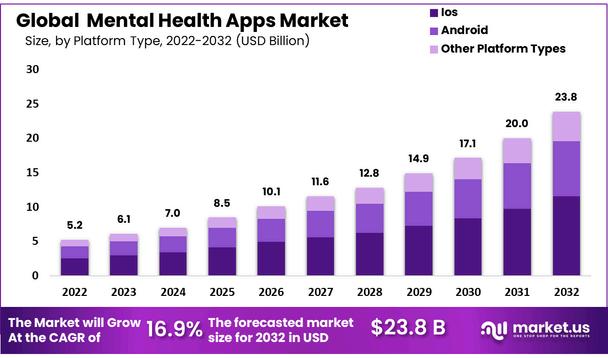
Image Source: Market.us URL: https://marketus/wp-content/uploads/2023/08/Mental-Health-Apps-Marketpng

ImageSource: thebusinessresearchcompany.com
URL: https://wwwthebusinessresearchcompanycom/i nfographimages/240315 GMR Digital Mental H ealth Marketwebp
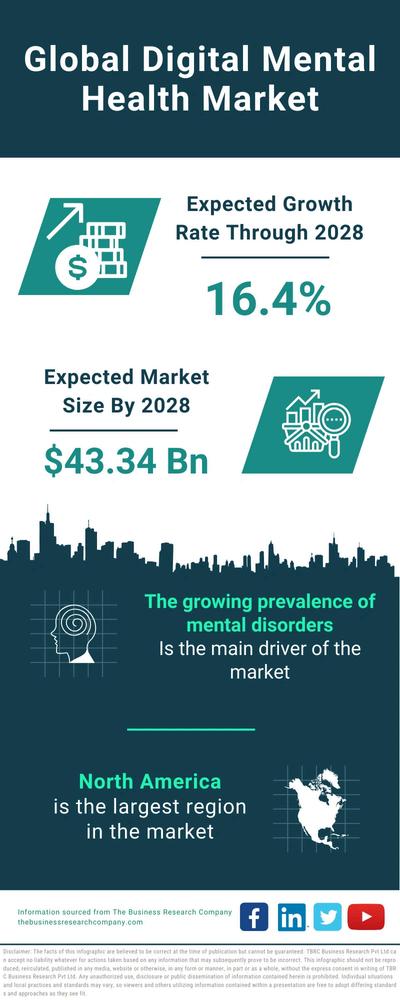



MARKETANALYSIS
DemographicInsightsandUserSegmentation
8D Wellness AI targets several key demographic segments to optimize its reach and impact. Our data suggest that our main users are:
Young Adults (Ages 18-34): Tech-savvy and increasingly facing mental health issues like anxiety and depression, this group is a primary focus. Middle-aged Adults (Ages 35-54): This demographic, often juggling personal and professional stress, finds value in features for stress management and wellness monitoring. Seniors (Ages 55 and above): Experiencing more loneliness and related mental health challenges, seniors are slowly embracing digital solutions designed for their needs.
We've developed user personas through detailed surveys and demographic research, revealing distinct preferences and requirements in each group, which guide our feature customization and marketing approaches.
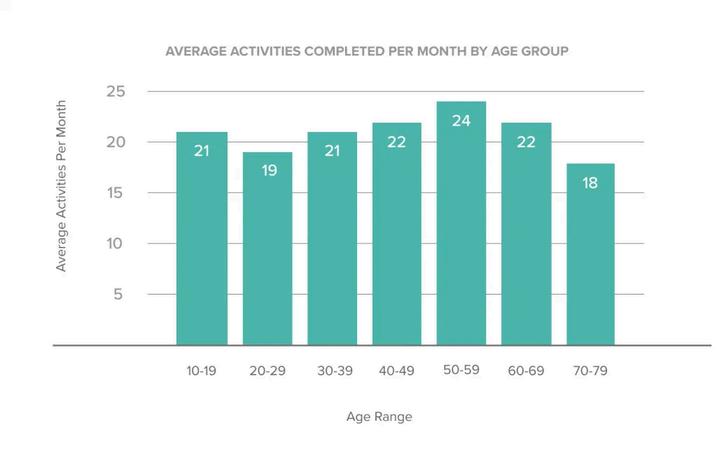
ImageSource:NeuroFlow.com
URL:https://www.neuroflow.com/wp-content/uploads/2022/08/Frame-1-41024x653.png.webp
MARKETANALYSIS
UserAdoptionDriversandBarriers
User adoption of mental health technology mainly stems from greater awareness of mental health issues and the convenience of digital options. The global health crisis has shifted public views, leading to wider acceptance and reliance on digital health platforms, Innovations that ensure privacy, immediacy, and customization also enhance their appeal.
Yet, challenges remain, particularly around technology access and privacy concerns. Some potential users are doubtful about the effectiveness and security of digital health solutions. Apprehensions about data privacy and the security of personal health information continue to impact user trust and adoption rates.
Peer-reviewed articles and whitepapers, like those in the American Journal of Preventive Medicine, suggest that overcoming these hurdles requires clear communication of benefits and strong privacy protections, which can help reassure users and promote wider adoption.
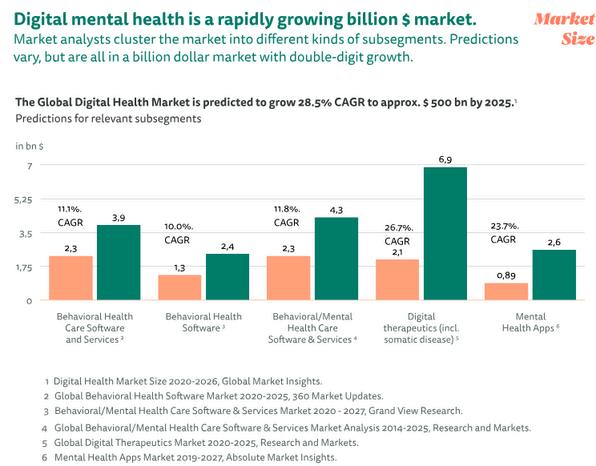
ImageSource:HelloBetter.de
URL:https://hellobetter.de/wp-content/uploads/2021/07/Digital-Mental-HealthMarket.svg




COMPETITIVE LANDSCAPE
KeyCompetitorsandMarketPositioning
In the dynamic field of health technology, 8D Wellness AI competes with established tech giants and innovative startups. Major players like Apple, Google, and newer entities such as Headspace and Calm have significantly shaped the mental health technology landscape. Apple’s HealthKit and Google’s Fit platforms incorporate extensive health tracking functionalities that include mental wellness components, positioning them as leaders in both technology and market reach. These companies capitalize on their robust ecosystem of devices and software, creating a seamless user experience that integrates various health metrics.
Startups like Headspace and Calm specialize in mental health by offering meditation and mindfulness exercises, catering to niche markets looking for specific mental health solutions rather than broad health monitoring.
CompetitiveAdvantagesof8DWellnessAI
8D Wellness AI distinguishes itself by focusing on highly personalized, AI-driven mental health solutions that leverage real-time data to offer tailored interventions. Unlike broader health apps, 8D Wellness AI uses sophisticated machine learning algorithms to analyze data patterns specific to mental health, such as stress triggers and mood fluctuations, offering more targeted and effective interventions.
This unique approach is supported by proprietary technology, including patents on specific AI algorithms and data processing techniques that enhance predictive accuracy and user interaction. Our system’s ability to integrate seamlessly with various IoT devices while ensuring user data privacy and security also sets it apart from competitors.
StrategicAlliancesandPartnerships
Strategic alliances play a pivotal role in enhancing 8D Wellness AI’s market presence and capabilities. We have formed partnerships with major healthcare providers and academic institutions to refine our algorithms and expand our reach. Collaborations with universities have facilitated access to cutting-edge research and development resources, enabling continuous improvement of our AI models.
Moreover, by partnering with healthcare systems, 8D Wellness AI has been integrated into patient care workflows, demonstrating significant improvements in patient outcomes and operational efficiencies. These partnerships not only bolster our technological capabilities but also enhance our credibility and trust within the healthcare community.
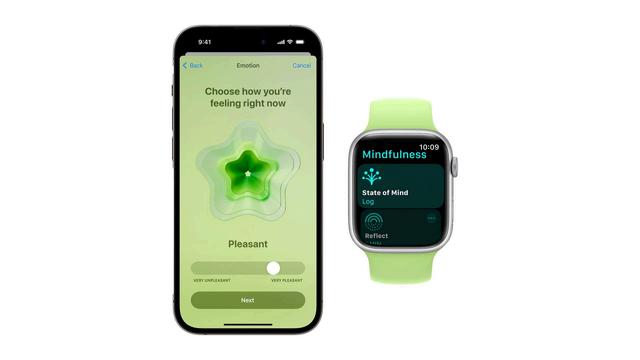
BUSINESSMODEL& REVENUESTREAMS
RevenueGenerationStrategies
8D Wellness AI has created a diverse revenue model aimed at various sectors within the digital health market. Our strategies encompass:
Direct Sales of Services: We provide custom mental health monitoring solutions to individual clients and healthcare providers through direct sales, Our advanced diagnostic and therapeutic tools are promoted via these channels. 1.
PartnershipandCollaborationOpportunities
Forming strategic partnerships with healthcare providers, insurance companies, and corporate wellness programs is central to our business approach, These alliances bring stable revenue streams and boost our market credibility. For instance, our partnership with a major health insurance company expands our audience reach while offering insurers a method to cut costs via improved health outcomes.

3.
Subscription Models: Our platform is accessible through a subscription service that ensures users receive ongoing updates and support; this setup helps them benefit from the latest in AI-driven mental health care. 2. Premium Features: Our basic services are included in a freemium package; however, more sophisticated features like advanced analytics and personalized health reports require a fee. This tiered approach not only attracts a broad user base but also secures ongoing revenue from dedicated users.
Market research from sources like Statista indicates a growing trend in subscription-based health services, growing annually by 12%, showing a robust demand for these models.
Industry case studies, such as those from Frost & Sullivan, show that these partnerships not only broaden market access but also build user trust, which drives further adoption.
Long-termFinancialProjections
Our five-year financial outlook is shaped by current market conditions and our strategic plans. We anticipate reaching our break-even point within the first three years, aiming for a revenue increase at a compound annual growth rate (CAGR) of 18%. This growth will likely stem from an expanded user base, greater penetration of our premium services, and a stronger partnership network.
Financial models, backed by insights from the market, suggest that with sustained tech investment and market expansion, 8D Wellness AI could see significant ROI, affirming our position as a leader in the mental health tech sector. Our projections include sensitivity analyses to account for potential market shifts, equipping us to handle possible fluctuations in the health tech environment.



IMPLEMENTATION STRATEGY
The implementation of 8D Wellness AI is structured into distinct phases, each designed to optimize the system's efficacy and integration into different markets and healthcare systems.
Phase1:PilotTesting(0-6months)
Activities: Deploy 8D Wellness AI in a limited number of healthcare settings to monitor real-time operations and gather initial user feedback.
Goals: Identify any technical issues, gather data on user engagement, and assess the preliminary impact on patient outcomes.
Timeline: First 3 months dedicated to initial deployment and next 3 months for comprehensive evaluation and initial feedback integration.
Phase2:RegionalLaunch(6-12months)
Activities: Following successful pilot testing, expand the rollout to additional regions. This phase focuses on broader but still controlled environment testing.
Goals: Validate scalability of the platform, refine system based on diverse demographic data, and enhance user interface based on wider user feedback.
Timeline: Start with select regions with high potential for digital health adoption and gradually expand to cover all major areas in the targeted country.
Phase3:NationalExpansion(1-2years)
Activities: Launch 8D Wellness AI across the entire country, integrating feedback from earlier phases to improve system functionality.
Goals: Achieve widespread adoption and integration into national healthcare systems, establish partnerships with major health insurance providers to ensure coverage and accessibility.
Timeline: Full national rollout planned to commence after 12 months from the regional launch, complete by the end of the second year.
Phase4:InternationalScaling(2-5years)
Activities: Adapt and deploy 8D Wellness AI in international markets, considering each region's specific legal and medical requirements.
Goals: Establish 8D Wellness AI as a global solution for mental health management, with localized versions to meet specific regulatory and cultural needs.
Timeline: Gradual rollout based on partnerships with international health providers and regulatory approval timelines in each market.
IntegrationwithExistingHealthSystems
The technical integration of 8D Wellness AI involves:
SoftwareCompatibilityandDataProtocols:
Ensure the AI system is compatible with major EHR systems through adaptable interfaces and compliant data exchange protocols.
UserTrainingPrograms:
Implement extensive training sessions for healthcare providers, focusing on the system's capabilities, data interpretation, and best practices for integrating AI insights into patient care.
IMPLEMENTATION STRATEGY
MonitoringandEvaluationMechanisms
Continuous monitoring and evaluation are critical to the iterative improvement of 8D Wellness AI:
RegularSystemAuditsandPerformanceReviews:
Scheduled every six months to assess system security, data accuracy, and user satisfaction.
FeedbackMechanisms:
Ongoing collection of user feedback through digital surveys and direct communication channels to inform system upgrades and feature enhancements.
This detailed, phased approach ensures that 8D Wellness AI is not only effectively implemented but also continuously improved, adapted, and scaled to meet the evolving needs of users and the healthcare industry globally.
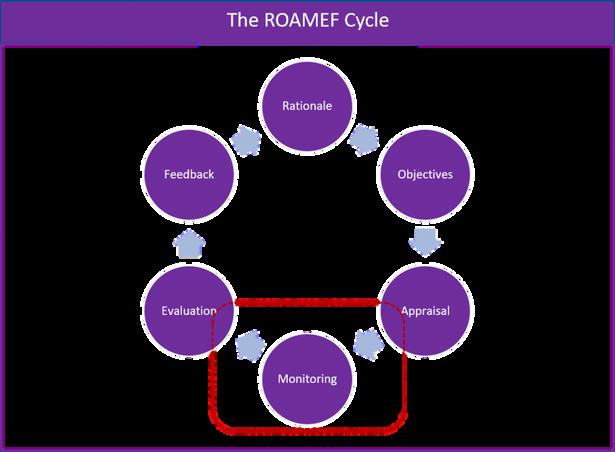
The ROAMEF Cycle, Monitoring & Evaluation. Image Source: analyticsinactionco URL: https://analyticsinaction.co/wpcontent/uploads/2019/11/The-ROAMEF-Cycle1024x752.png



CHALLENGES& MITIGATIONSTRATEGIES
1.TechnicalChallenges
8D Wellness AI encounters several technical issues crucial to its success and the trust of its users. Main concerns include:
DataAccuracy: It's critical to ensure the precision of data collected from different sources to avoid incorrect analyses and health advice.
Algorithm Bias: AI algorithms might develop biases based on their training data, potentially leading to skewed results and unequal user treatment.
Scalability: As 8D Wellness AI expands, it's vital to scale the technology to manage larger data volumes without loss of performance.
ActionableSteps:
To tackle these issues, 8D Wellness AI has adopted several strategies:
Diverse Training Datasets: Utilizing a wide variety of data helps reduce biases and enhances the reliability of AI outputs.
Scalable Cloud Architectures: Cloud solutions that scale dynamically with demand help keep our systems robust and responsive as user numbers increase.
2.MarketAdoptionBarriers
Several factors can impede the adoption of new health technologies like 8D Wellness AI:
User Skepticism: Potential users may hesitate to trust AI with health issues, especially mental health.

Digital Literacy: The varying levels of user comfort with technology can influence their engagement with digital health solutions.
Competition: The presence of established tech giants and numerous startups creates a competitive market environment.
ActionableSteps:
To surmount these barriers, 8D Wellness AI has formulated specific strategies:
Awareness Campaigns: We run educational campaigns to inform potential users about the benefits and dependability of our AI solutions.
Collaborative Endorsements: Forming partnerships with reputable healthcare providers and organizations to endorse our platform boosts credibility and user trust.
CHALLENGES& MITIGATIONSTRATEGIES
RiskManagementandContingencyPlanning
Addressing potential risks is essential for the long-term success of 8D Wellness AI. Focus areas include:
Technology Failures: Hardware or software issues could disrupt our services.
Market Fluctuations: Shifts in healthcare regulations or market dynamics could affect our operations,
Regulatory Changes: New laws may introduce additional compliance requirements.
ActionableSteps:
Our approach to managing these risks involves:
Regular System Audits: Conducting frequent checks to ensure all system components function properly and to prevent potential failures.
Market Analysis Updates: We continuously monitor market trends to adjust our strategies effectively.
Regulatory Compliance Reviews: Ongoing assessments of the regulatory environment help ensure compliance with all relevant laws.
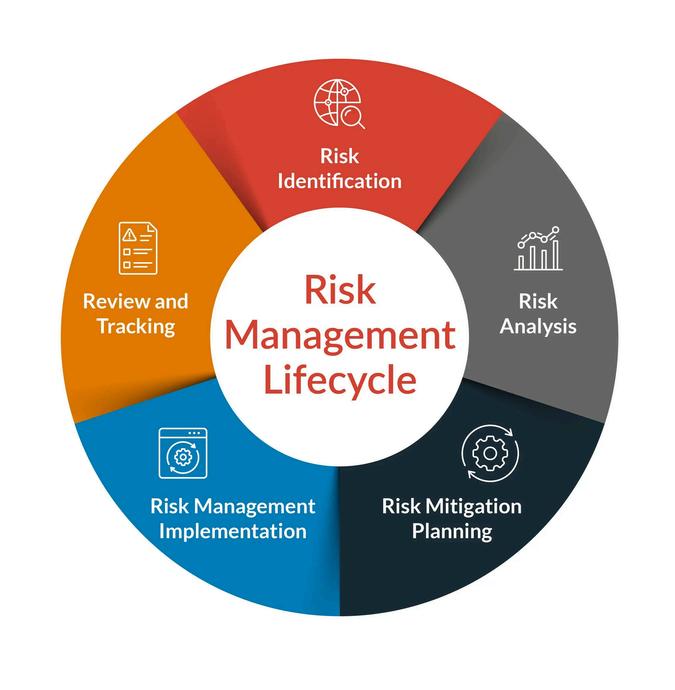
Risk Management Cycle
Image Source: Alertmediacom URL: https://www.alertmedia.com/wpcontent/uploads/2023/10/Risk-ManagementLifecycle-Graphic-V2.jpg



Technical Data Breaches
Bias
System Downtime
Regulatory Non-compliance with new regulations
Changes in data protection laws
RISKREGISTER
advanced cybersecurity measures, regular audits.
diverse data sets for training, ongoing algorithm audits.
robust backup systems, real-time monitoring.
update compliance protocols, legal reviews.
with legal experts to anticipate changes. Market
targeted marketing campaigns, user education programs.
Intense competition from tech giants
Operational Integration complexities with health
Dependency on third-party service providers
Financial Funding shortfalls

Strategic Misalignment with market needs
Differentiate with unique features, leverage niche markets.
closely with healthcare providers for smooth integration.
suppliers, establish strong SLAs.
Secure funding rounds in advance, maintain lean operations.
Continuously gather user feedback, adapt product development.
REGULATORY& COMPLIANCE CONSIDERATIONS
The regulatory framework for health technology, particularly for mental health apps, varies widely by region. In the United States, the Food and Drug Administration (FDA) may classify significant-risk health apps as medical devices, necessitating stricter regulatory compliance. In Europe, the European Medicines Agency (EMA) works in conjunction with GDPR to set guidelines focused on user safety and data protection.
Organizations such as the FDA and EMA ensure that apps like 8D Wellness AI meet rigorous standards to safeguard both users and their data.
ComplianceRequirementsfor8DWellnessAI
8D Wellness AI conforms to stringent international data protection and medical device regulations. This compliance includes:
General Data Protection Regulation (GDPR): Protects data privacy for all individuals within the European Union and the European Economic Area.
Health Insurance Portability and Accountability Act (HIPAA): Maintains privacy standards to protect patients' medical records and other health information provided to health plans, doctors, hospitals, and other healthcare providers.
Our operations are guided by detailed clauses from both GDPR and HIPAA, especially concerning the handling of personal data, user consent, and security of medical information. Analyses and commentaries on these regulations aid in refining our compliance strategies, ensuring 8D Wellness AI meets these crucial standards.
StrategiesforMaintainingOngoingCompliance
8D Wellness AI employs a thorough system of internal controls and audits to stay compliant with changing regulations. These include:
DedicatedComplianceOfficers
These professionals keep updated on regulatory changes and ensure our systems and procedures are promptly adjusted.
RegularAudits
We conduct these internally and through third-party firms to adhere to legal standards and address potential issues early.
ContinuingEducationPrograms
All staff participate to stay informed about regulatory demands and compliance processes.



INTELLECTUALPROPERTY
PatentStrategyforCoreTechnologies
8D Wellness AI's innovation is driven by proprietary technologies that require protection to maintain a competitive edge in the health tech industry. Our approach to intellectual property involves identifying unique AI algorithms, data processing techniques, and user interaction models that are foundational to our platform.
ProcessofPatenting:
Identification: We first identify innovations within our development that offer new solutions or improvements in mental health technology.
Assessment: Each potential patent undergoes a thorough evaluation to ensure it meets the criteria of novelty, nonobviousness, and utility.
Filing: Working closely with patent attorneys, we draft detailed specifications and claims that accurately reflect the uniqueness of our technology.
The importance of these patents lies in securing our inventions that enable personalized mental health assessments and interventions, distinguishing our offerings i
TrademarksandBrandProtection
The identity of 8D Wellness AI is not only defined by its technological innovations but also by its brand, which includes distinctive logos, slogans, and design elements. Protecting these through trademarks is crucial for maintaining brand integrity and market position.

StrategyforTrademarkRegistration
Registration: We systematically register our trademarks in key markets to ensure exclusive rights to our brand elements. Enforcement: Regular monitoring of the market ensures that our trademarks are not infringed, with legal actions ready to be taken when necessary.
HandlingTradeSecretsandConfidentialInformation
8D Wellness AI possesses a wealth of confidential information, including proprietary algorithms and business strategies that are pivotal for maintaining our competitive advantage. Protecting these trade secrets involves a combination of legal and practical measures:
LegalAgreements
Non-disclosure agreements with employees, partners, and vendors ensure that our confidential information remains secure.
SecurityMeasures
Advanced security protocols are implemented to protect our digital and physical repositories of information.
The management of these secrets is guided by best practices recommended by legal experts in intellectual property, ensuring that 8D Wellness AI's innovations remain exclusive to our operations and continue to provide us with a strategic advantage in the marketplace.
RESOURCES&BUDGET
HumanResources
8D Wellness AI requires a multidisciplinary team to ensure the platform's effectiveness and compliance with health regulations. Key roles include:
DataScientistsandAIEngineers(5)
To develop and refine the AI algorithms that drive the platform.
RegulatoryExperts(2):
To navigate health regulations and ensure compliance.
SupportStaff(3):
To manage operations, customer relations, and administrative tasks.
RecruitmentandRetention
We aim to attract skilled professionals through competitive salaries, comprehensive benefits, and opportunities for growth. Retention will focus on a positive work environment and ongoing professional development.
TechnologicalandOperationalResources
TechnologicalInfrastructure
Hardware for Data Processing: Servers and secure storage systems.
Software Licenses: Development tools and platforms, including AI modeling and cloud services (AWS or Google Cloud).
OperationalResources
Office Space: Leases for office space in tech hubs to facilitate team collaboration.
Customer Support Facilities: Investment in communication tools and training to provide excellent user support.
DetailedBudgetOverview
InitialSetupCosts
Technology Setup: $150,000 for servers, software licenses, and initial cloud setup.
Office Setup: $50,000 for leasing and furnishing an office space.
OperationalCosts(Yearly)
Salaries: $600,000 for the team.
Ongoing Tech Costs: $100,000 for software updates, server maintenance, and cloud services.
Marketing and Legal: $150,000 for market entry strategies and regulatory compliance.
RevenueProjectionsandCashFlow
Year 1: Projected expenses of $950,000 with expected revenue of $500,000.
Year 2: Projected expenses of $850,000 with expected revenue of $1,000,000 (break-even point).
Year 3: Projected expenses of $850,000 with expected revenue of $1,500,000 (ROI of 30%).
FinancialModels
Our budget is built on conservative estimates and market research indicating a growing demand for mental health technologies. Financial tools from established financial consulting firms provide frameworks for these projections, ensuring robust financial planning.



SUSTAINABILITY&FUTURE DIRECTIONS
Environmental, Social, and Governance (ESG) Considerations
SustainablePractices:
8D Wellness AI integrates Environmental, Social, and Governance (ESG) principles throughout its operations and development. We focus on environmental factors by minimizing the ecological impact of our technologies, like optimizing energy use in data centers and choosing ecofriendly materials for our devices.
CommunityImpact:
On the social front, 8D Wellness AI is dedicated to improving access to mental health solutions for diverse populations, thereby reducing health care disparities. Our governance model upholds ethical AI development with a strong emphasis on transparency and accountability.
ESGStandardsApplication:
By adhering to well-established ESG standards, 8D Wellness AI maintains alignment with global sustainability best practices. This not only boosts our commitment to corporate responsibility but also establishes us as leaders in sustainable technology development.
Plans for Scalability and Technological Advancements
ScalabilityRoadmap:
Our systems are built to scale, from small pilot programs to extensive global operations. They feature advanced algorithms designed to handle increasing volumes of users without a drop in performance.

TechnologicalUpgrades:
Future technological enhancements will likely include integrating blockchain to improve data security and transparency. This will promote greater auditability of data and foster trust among users, especially crucial for sensitive health information.
PhasesofExpansion:
Pilot Programs: We begin by testing in select regions to collect initial data and feedback,
Regional Scaling: Next, we expand to wider areas, tailoring our system with demographic-specific adjustments.
Global Launch: Eventually, we aim for full-scale deployment, customized to various regulatory and cultural contexts.
VisionforFutureHealthEcosystems
IntegrationwithHealthSystems:
Looking ahead, 8D Wellness AI plans to become a seamless part of broader health ecosystems. We aim to work alongside hospitals, clinics, and health insurers to offer a cohesive approach to mental health care.
PolicyInfluence:
A long-term objective is to shape health care policies by showcasing the efficacy of AI in improving mental health. Collaborations with academic bodies and policymakers will be crucial in this effort.
FutureHealthTechnologyTrends:
AI's potential to transform health care is vast, Predictive health analytics, personalized medicine, and automated care protocols are among the developments we anticipate will radically change global health care delivery.
CALLTOACTION
RecapitulationofKeyFindings
This whitepaper has systematically unpacked the various facets of 8D Wellness AI, showcasing its groundbreaking potential in revolutionizing mental health care. Each section has highlighted not only the innovative technology behind 8D Wellness AI but also its practical applications and the broad spectrum of benefits it offers to users and stakeholders.
StrategicConclusions:
Stakeholders are encouraged to recognize the transformative implications of 8D Wellness AI, from enhancing patient outcomes through AI-driven insights to reshaping how mental health services are delivered globally. The evidence presented underscores the platform's viability and the strategic advantage it offers in the health tech landscape.
CallstoAction
ForInvestors:
Invest in a future where mental health care is accessible, effective, and driven by AI innovation. Your capital can accelerate the development and deployment of 8D Wellness AI, creating value and impact.
ForHealthcareProviders:
Collaborate with us to integrate 8D Wellness AI into your service offerings, enhancing your capacity to deliver personalized and preventative mental health care.
ForRegulatoryBodies:
Work alongside us to ensure 8D Wellness AI meets all compliance standards while fostering innovation in health tech regulations.
ForTechnologyPartners:
Join us in refining and expanding 8D Wellness AI's capabilities through cutting-edge technologies and shared expertise.
VisionfortheFuture
Looking ahead, 8D Wellness AI is set to not only expand its technological capabilities but also its market reach. Anticipated advancements include integrating nextgeneration AI algorithms and expanding into new geographic regions with tailored solutions.
FutureOutlook:
Technological Advancements: Leveraging emerging technologies such as quantum computing and advanced neural networks to enhance predictive accuracy and user interaction.
Market Expansion: Extending services to underserved regions, thus democratizing access to quality mental health solutions.
Market Forecasts and Trends: Projections indicate significant growth in the digital health sector, with AI solutions at the forefront. 8D Wellness AI is wellpositioned to lead this wave, contributing positively to global mental health outcomes.



8D

